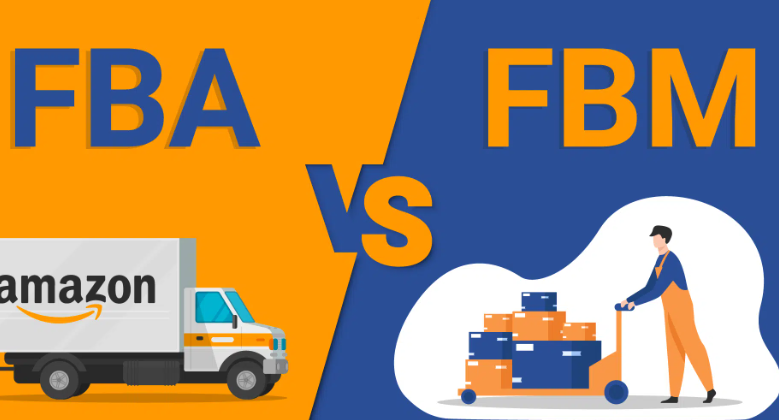
When you start selling on Amazon, one of the crucial decisions you’ll make is choosing between Fulfillment by Amazon (FBA) and Fulfillment by Merchant (FBM). Both have their unique advantages and challenges, and the choice largely depends on your business model, product type, and personal preferences. In this blog post, we’ll explore both options to help you make an informed decision.
Understanding Amazon FBA
With Fulfillment by Amazon, you send your products to Amazon’s fulfillment centers, and they take care of storage, shipping, customer service, and returns for these products. This service is designed to offer convenience and scalability, but it comes with specific costs and considerations.
Pros of FBA:
Hands-Off Shipping and Handling: Amazon’s expertise in logistics means you don’t have to worry about packing, shipping, or handling returns. This can save you a significant amount of time, especially as your business grows.
Prime Eligibility: FBA products are automatically eligible for Amazon Prime, which can significantly increase your sales potential due to the large base of Prime subscribers.
Enhanced Customer Trust: Products fulfilled by Amazon often enjoy a higher level of trust from customers, potentially leading to increased conversion rates.
Streamlined Management for Multichannel Sellers: If you sell across multiple platforms, FBA can handle fulfillment for all your channels, not just Amazon sales.
Cons of FBA:
Higher Costs: FBA involves fees for storage, fulfillment, and additional long-term storage fees. These costs can add up, especially for products with lower turnover or larger items.
Less Control: Since Amazon handles your inventory, you have less control over the packing process and how your items are presented to the customers.
Inventory Management: You need to keep a close eye on your inventory levels in Amazon’s warehouses to avoid stockouts or overstocking, which can incur additional fees.
Understanding Amazon FBM
Fulfillment by Merchant means you handle storage, packing, shipping, customer service, and returns yourself. This option gives you more control but requires more hands-on involvement.
Pros of FBM:
More Control: You have full control over the inventory, packing, and shipping processes. This can be particularly advantageous for sellers with unique packaging needs or for those selling large or heavy items.
Potentially Lower Costs: FBM can be more cost-effective, especially if you already have the infrastructure for storage and shipping, or if you sell products in lower volumes.
Direct Customer Interaction: Handling customer service yourself provides direct interaction with your customers, which can be valuable for building relationships and brand loyalty.
Cons of FBM:
Time and Resource Intensive: FBM requires a significant time investment and resources for managing all aspects of fulfillment.
No Prime Eligibility: FBM products are not automatically eligible for Amazon Prime, which can be a disadvantage in a marketplace where Prime products are often favored.
Shipping Costs: Depending on your product size and shipping volume, shipping costs can be higher compared to FBA’s rates, especially if you can’t negotiate bulk shipping discounts.
Making the Right Choice
Consider Your Product Type and Size: If you sell small, lightweight items with high turnover, FBA might be more cost-effective and convenient. However, for large, bulky items, or products with lower turnover, FBM might be the better choice.
Evaluate Your Resources: If you have the infrastructure and resources to manage shipping and customer service efficiently, FBM could give you greater control with lower costs. Conversely, if you prefer a hands-off approach, FBA might be more suitable.
Think About Scalability: If you’re planning to scale your business quickly, FBA offers the infrastructure to grow without the need for significant investment in logistics.
Assess Your Margin and Volume: Calculate your profit margins under both FBA and FBM. Higher-volume sellers might find FBA more beneficial, while lower-volume sellers might save costs with FBM.
Conclusion
Choosing between FBA and FBM is a strategic decision that can significantly impact your business. It’s crucial to weigh the pros and cons of each option against your business model, product type, volume, and growth plans. Remember, your choice is not set in stone; many sellers use a combination of both FBA and FBM, depending on their product range and business needs. The key is to remain flexible and adapt your strategy as your business evolves.
